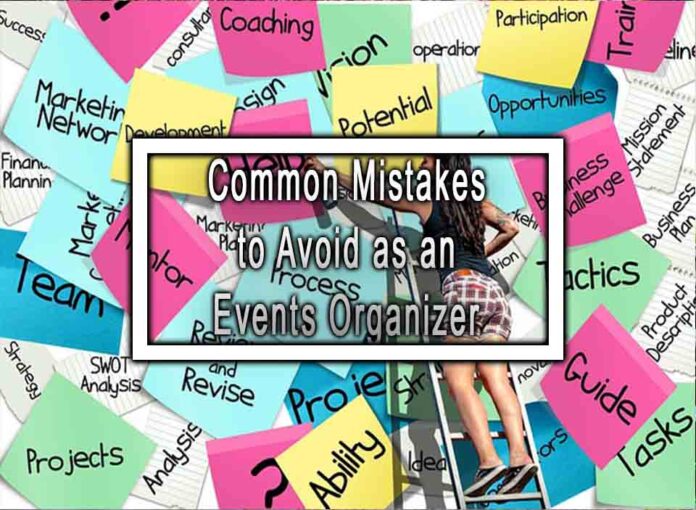As an events organizer, it’s important to be aware of common mistakes and pitfalls that can impact the success of your event. Here are some common mistakes to avoid:
1. Lack of Planning
Failing to plan properly is a common mistake. It’s essential to create a detailed event plan, including timelines, budgets, logistics, and contingency plans. A lack of planning can lead to disorganized events, delays, and unexpected issues. If you want to use some launch effects in your event, the venue and arrangements should be according to that.

2. Inadequate Budgeting
Failing to establish a realistic budget can result in financial difficulties. Consider all expenses, including venue costs, equipment rentals, marketing, catering, and staffing. Leave room for unexpected expenses to avoid financial strain.
3. Poor Communication
Effective communication is crucial for successful events. Failing to communicate clearly and consistently with vendors, sponsors, team members, and attendees can lead to misunderstandings, delays, and unsatisfied stakeholders. Utilize clear channels of communication and provide regular updates.
4. Neglecting Risk Management
Failing to assess and manage risks can have detrimental effects on your event. Identify potential risks and develop contingency plans to address them. Consider factors such as weather conditions, security concerns, technical issues, and health and safety regulations.
5. Insufficient Marketing and Promotion
Neglecting marketing and promotion can result in low attendance and limited awareness of your event. Develop a comprehensive marketing plan that utilizes various channels, such as social media, email marketing, press releases, and partnerships, to reach your target audience.
6. Overlooking the Attendee Experience
Focusing solely on logistics and neglecting the attendee experience is a common mistake. Pay attention to details such as event flow, comfortable seating, signage, accessibility, and engaging activities to create a memorable and enjoyable experience for attendees.
7. Ineffective Vendor Management
Poor vendor management can lead to unreliable services, missed deadlines, and budget overruns. Carefully select reputable vendors, clearly communicate expectations, establish contracts, and maintain regular communication throughout the event planning process.
8. Lack of Post-Event Evaluation
Failing to evaluate the success of your event can hinder future improvements. Collect feedback from attendees, vendors, and team members to identify strengths, weaknesses, and areas for improvement. Use this feedback to refine your planning process for future events.
By avoiding these common mistakes and adopting best practices in event organization, you can increase the likelihood of a successful and memorable event that meets the expectations of attendees, stakeholders, and yourself as an organizer.











